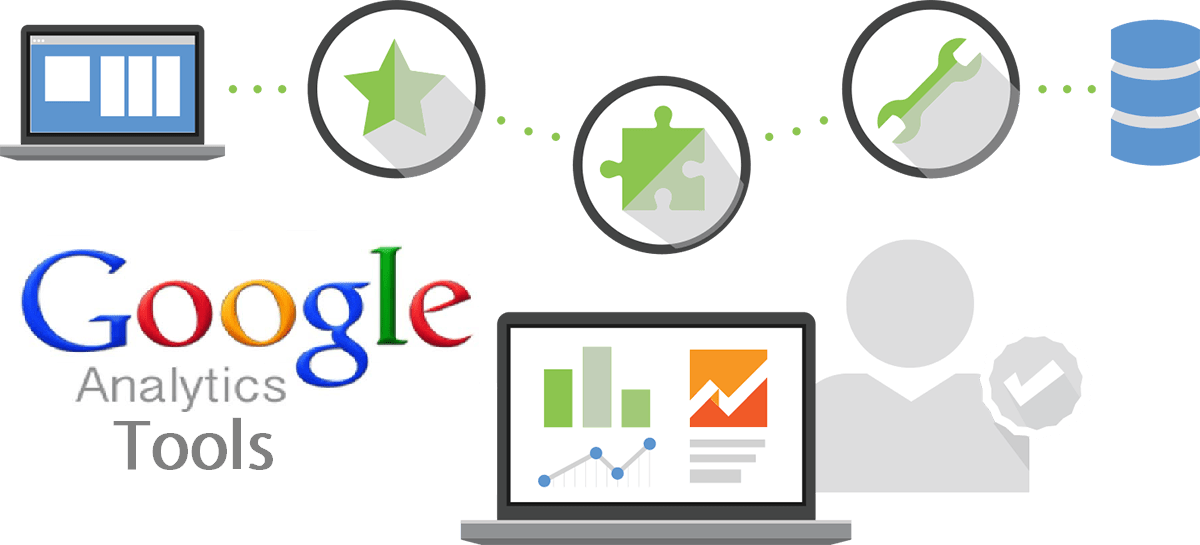Let Loose the Complete Potential of Data Utilizing Robust Analytics
Let Loose the Complete Potential of Data Utilizing Robust Analytics
Blog Article
Maximize Growth: Exactly How Analytics Drive Better Approaches
By using information insights, organizations can fine-tune their operational strategies, expect market adjustments, and enhance client engagement. The challenge exists not just in accumulating data however in properly analyzing it to drive substantial outcomes.
Understanding Data Analytics
Data analytics is a methodical computational evaluation of data that makes it possible for companies to uncover significant patterns and insights. This procedure incorporates a range of methods, consisting of statistical evaluation, predictive modeling, and data mining, which jointly intend to transform raw data right into workable information - Analytics. By employing these techniques, companies can make enlightened choices that are rooted in empirical evidence instead of instinct alone
The structure of information analytics hinges on its ability to manage large quantities of details from diverse sources. This includes structured information, such as data sources, and disorganized data, including social media sites communications and customer responses. Via the usage of specialized software and tools, analysts can remove and process this information effectively, determining trends and correlations that may not be instantly apparent.
Understanding information analytics also includes identifying the significance of information high quality and stability. Trustworthy and precise data is vital for significant evaluation; hence, organizations should execute durable information governance techniques. The repetitive nature of analytics permits for continual refinement and enhancement of methods, guaranteeing that companies stay dexterous in the face of changing market characteristics and consumer habits.
Secret Advantages of Analytics

One of the key advantages of analytics is its capacity to provide actionable insights. Organizations can rapidly examine vast amounts of information, revealing patterns that might not be right away apparent.
Another considerable benefit is boosted consumer understanding. Analytics tools make it possible for companies to sector their audience, track customer actions, and customize advertising initiatives. This targeted method not only improves consumer interaction yet also drives greater conversion rates.

Implementing Analytics Approaches
To totally recognize the benefits of analytics, organizations must adopt organized methods for execution. This starts with plainly defining objectives that line up with wider organization objectives. By developing certain, quantifiable end results, companies can focus their analytics efforts on locations that generate the highest possible return on financial investment.
Following, companies must focus on data governance to make sure the honesty and security of the information being analyzed. This involves setting up methods for data collection, storage space, and access while adhering to relevant policies. Guaranteeing high-quality information is crucial for generating purposeful understandings.
Furthermore, cultivating a culture of data-driven decision-making is necessary. This calls for training employees to interpret analytics searchings for and encouraging cooperation throughout divisions. When teams understand the worth of analytics, they are a lot more most likely to incorporate insights into their everyday operations.
Finally, companies must regularly assess and fine-tune their analytics strategies. The landscape of information and technology is continually advancing, and remaining adaptable will permit organizations to leverage brand-new tools and techniques efficiently. By carrying out these structured approaches, organizations can maximize the influence of their analytics efforts and drive lasting growth.
Tools for Reliable Evaluation
Efficient evaluation depends on a range of devices that assist in the extraction of insights from data - Analytics. These devices can vary from simple spreadsheet applications to sophisticated machine learning systems, each serving a distinct purpose in the analytical process
Data visualization software application, such as Tableau and Power BI, view plays a critical duty in transforming complex datasets into reasonable visual representations. These devices enable analysts to identify patterns and patterns rapidly, enabling more enlightened decision-making.
Analytical evaluation software, like R and SAS, uses advanced capabilities for performing in-depth evaluations, including regression, my blog theory testing, and predictive modeling - Analytics. These functions encourage organizations to draw meaningful verdicts from their information, recognizing potential possibilities and dangers
Furthermore, database monitoring systems such as SQL and NoSQL databases give the needed infrastructure for keeping and querying huge volumes of data effectively. They make sure that data is arranged and obtainable for analysis.
Finally, business intelligence platforms integrate different data resources, offering a thorough sight of business performance. By utilizing these tools effectively, organizations can boost their logical abilities, enabling them to create methods that optimize development and enhance overall performance.
Study of Success
Successful companies typically utilize data analytics to drive impactful strategies, as evidenced by several significant instance studies. By employing these understandings, Netflix has effectively customized its material referrals, resulting in boosted individual involvement and subscriber retention.

Furthermore, Starbucks utilizes data analytics to identify ideal shop places and refine its product offerings. By examining client demographics and buying patterns, Starbucks successfully identifies high-potential markets and tailors its menu to regional preferences, driving sales and customer loyalty.
These study show that effective use of information analytics can lead to critical benefits, promoting technology and development within organizations across different sectors.
Verdict
In final thought, the integration of analytics right into business methods substantially boosts decision-making procedures and cultivates sustainable growth. The efficient implementation of analytics devices additionally supports dexterity and advancement, making it possible for organizations to browse competitive landscapes with better precision.
Data analytics is a systematic computational evaluation of information that makes it possible for companies to reveal purposeful patterns and understandings.Recognizing data analytics likewise entails identifying the value of data high quality and honesty. Reputable and accurate data is critical for meaningful evaluation; hence, organizations should implement robust information administration practices.Next, companies should prioritize information administration to ensure the stability and security of the data being examined.Effective organizations frequently take advantage of information analytics to drive impactful strategies, as evidenced by a number of remarkable case research studies.
Report this page